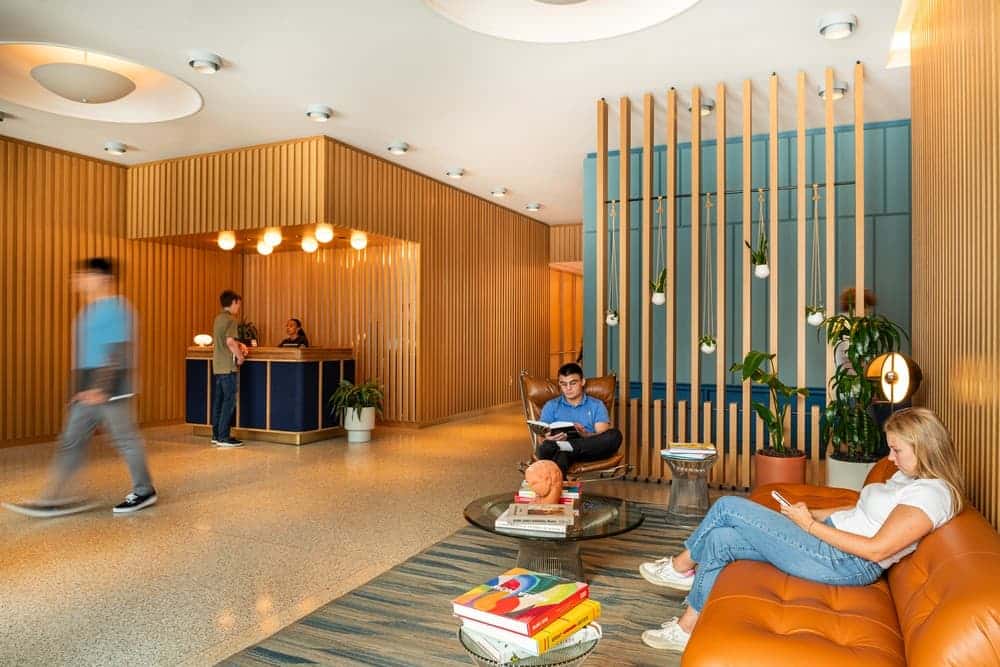
Shared living spaces offer unique opportunities for creating vibrant, connected communities. Whether it’s a residential strata property, co-living arrangement, or a shared building with diverse residents, fostering a sense of community enhances the quality of life for everyone involved. It also contributes to better property maintenance, stronger interpersonal relationships, and reduced conflicts.
In settings managed by organizations like NSW strata management, creating a cohesive community requires active participation and thoughtful planning. Below are actionable strategies to build a sense of belonging in shared living spaces.
Encourage Open Communication
Clear and transparent communication is the cornerstone of any thriving community. It ensures that everyone feels heard and valued, reducing misunderstandings and fostering trust among residents.
Ways to Facilitate Communication
- Create Online Platforms: Use apps or online portals to share updates, discuss issues, and gather feedback from residents.
- Organize Regular Meetings: Hold monthly or quarterly meetings where residents can voice concerns, propose ideas, and stay informed about community matters.
- Appoint a Liaison: Designate a community representative to act as a bridge between residents and the management team.
An open communication system empowers residents to contribute and stay engaged.
Plan Social Activities
Social events are a great way to bring people together and help residents connect on a personal level. Shared experiences strengthen relationships and create a positive atmosphere within the community.
Ideas for Social Events
- Barbecues and Potlucks: Host casual gatherings where residents can share food and conversation.
- Themed Celebrations: Plan holiday-themed parties or cultural events to celebrate diversity.
- Game Nights or Movie Screenings: Provide opportunities for residents to unwind and socialize in a relaxed setting.
These activities create opportunities for residents to bond and establish lasting friendships.
Establish Shared Goals and Projects
Working toward common goals fosters a sense of teamwork and shared responsibility. It also gives residents a stake in the success of their community.
Examples of Shared Goals
- Community Gardens: Encourage residents to work together to create and maintain a green space.
- Recycling Programs: Promote sustainable living by setting up recycling initiatives.
- Improvement Projects: Collaborate on upgrading shared spaces, such as repainting walls or adding new furniture.
Shared goals inspire a sense of pride and ownership among residents.
Prioritize Inclusivity and Diversity
A welcoming environment ensures that everyone, regardless of their background, feels comfortable and accepted in the community.
How to Promote Inclusivity
- Celebrate Different Cultures: Organize events that highlight the traditions and customs of various cultures represented in the community.
- Accommodate Diverse Needs: Consider accessibility features and dietary preferences when planning events or making changes to shared spaces.
- Encourage Participation: Ensure that all voices are heard during meetings or decision-making processes.
Embracing diversity enriches the community and fosters mutual respect.
Maintain Shared Spaces Effectively
The condition of shared spaces significantly impacts how residents feel about their living environment. Well-maintained areas reflect care and responsibility, contributing to a sense of pride in the community.
Tips for Maintaining Shared Spaces
- Regular Inspections: Conduct routine checks to identify and address maintenance needs promptly.
- Encourage Responsibility: Motivate residents to keep communal areas clean and report issues promptly.
- Collaborate with Management: Work with the property management team to ensure efficient upkeep of shared spaces.
Collaborative maintenance enhances the sense of ownership and accountability within the community.
Address Conflicts Constructively
Disputes are inevitable in shared living spaces, but how they’re handled can make or break a community. A structured approach to conflict resolution prevents tensions from escalating.
Steps for Conflict Resolution
- Act Quickly: Address issues as soon as they arise to prevent them from growing.
- Facilitate Discussions: Bring concerned parties together in a neutral setting to discuss their viewpoints.
- Use Mediation: When necessary, involve a neutral third party, such as a professional mediator, to help resolve disputes.
Encouraging a respectful and solution-focused mindset ensures that conflicts are managed constructively.
Leverage Professional Management Support
Engaging with professional management services, such as NSW strata management, can streamline community-building efforts. They can handle administrative tasks, provide maintenance services, and mediate disputes, allowing residents to focus on fostering connections.
Benefits of Professional Support
- Efficient Problem-Solving: Experienced managers can quickly address operational issues.
- Expert Guidance: Management teams can provide insights and resources for organizing events or implementing policies.
- Community Engagement: Professional managers often facilitate communication and collaboration among residents.
Relying on professional support ensures that the community is well-organized and sustainable.
Recognize and Celebrate Contributions
Acknowledging the efforts of residents who actively contribute to the community fosters goodwill and encourages others to get involved.
Ways to Show Appreciation
- Public Acknowledgment: Highlight contributors during meetings or on community platforms.
- Token Rewards: Offer small incentives, such as gift cards or certificates, to recognize active participation.
- Personal Thank-Yous: A simple note or verbal acknowledgment can go a long way in showing appreciation.
Celebrating contributions strengthens community spirit and motivates others to take initiative.
Building a sense of community in shared living spaces requires commitment, creativity, and collaboration. By prioritizing open communication, organizing social activities, and maintaining shared spaces, residents can create a welcoming and harmonious environment. With the support of professional management and a focus on inclusivity, these efforts can transform shared living spaces into thriving communities that everyone is proud to call home.








